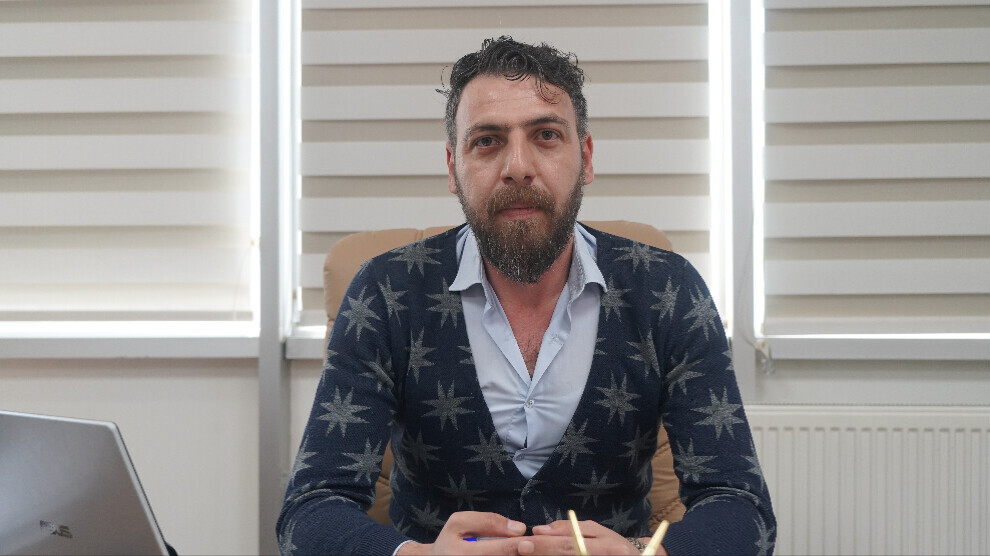Lawyer Binbir: Political prisoners’ releases are arbitrarily blocked
Lawyer Zeki Binbir said that prison boards are unlawfully preventing the release of political prisoners who have served three-quarters of their sentences.
Lawyer Zeki Binbir said that prison boards are unlawfully preventing the release of political prisoners who have served three-quarters of their sentences.

Turkey’s prisons remain among the primary sites of long-standing human rights violations. Arbitrary practices and unlawful execution regimes targeting prisoners persist as deep-rooted structural issues. Currently, 103,179 people are being held in prisons as their releases are being arbitrarily postponed. Although the law requires that prisoners be released after serving three-quarters of their sentences, this legal right is being denied by the Administrative and Observation Boards established under the 2020 penal execution law.
Political prisoners are subjected to loyalty tests with questions like: “Have you obeyed the state? Do you recognize its flag? Are you remorseful?” Such interrogations force prisoners to declare submission. Even trivial pretexts such as “not using water efficiently” or “not borrowing enough books” are used to block their release.
Zeki Binbir, co-spokesperson of the Prison Commission of the Association of Lawyers for Freedom (ÖHD), spoke to ANF about the arbitrary practices targeting prisoners and stated: “Prisons have become the main sites of human rights violations. As the Diyarbakır (Amed) Branch of the ÖHD, we have long been carrying out numerous efforts to expose the violations occurring inside prisons, to bring them to public attention, and to ensure they are addressed.”
Binbir emphasized that the postponement of releases is especially imposed on prisoners who have been incarcerated for 30 years or more. He said, “When we examine the decisions made by the Administrative and Observation Boards regarding these prisoners, we clearly see that they are enforcing a policy of 'repentance.' The execution of sentences is being delayed with fabricated justifications and excuses. We see this as a form of punishment within punishment.”
Administrative and Observation Boards are ignoring the law
Zeki Binbir drew attention to the unlawful conduct of the Administrative and Observation Boards, stating that they are acting as a second court. Binbir said, “The Administrative and Observation Boards have turned into a mechanism that, in effect, hands down punishments and blocks releases, as though they were a second court. In reality, there is no legal basis for this. Nowhere else in the world is there such a practice. It is fundamentally unlawful for individuals who are not judges to make decisions as if they were a court of law. The release of prisoners is being blocked under various pretexts.
These boards are acting in direct violation of the law. Recently, we have seen many cases where releases have been delayed, especially in Erzincan High-Security Prison. In most of these cases, prisoners are being forced to express 'repentance' as a condition for release.”
We are resisting rights violations
Binbir stated that as the ÖHD, they are working to raise public awareness about the unlawful practices in prisons. He said, “We are resisting the human rights violations taking place in prisons. In particular, we have ongoing lawsuits demanding the annulment of the decisions made by the Administrative and Observation Boards. We believe this is rooted in a political mindset maintained by the state. The state is trying to suppress the Kurdish population through these practices. This is clear, as sentence postponements are applied exclusively to political prisoners.”
The state must now take action
Binbir also addressed the call made by Abdullah Öcalan and concluded his remarks as follows: “There is a process that has developed following Mr. Öcalan’s call on February 27. This process must be properly understood, and the government must take appropriate steps in response. What is happening in the prisons today is unlawful. The government must act urgently on this issue.
In particular, Mr. Öcalan’s right to hope must be recognized. We are currently witnessing a positive development. For this process to move forward, the state must finally take action. First and foremost, this means ensuring the freedom of Mr. Öcalan, who is in Imralı Island, and the immediate release of prisoners who have been incarcerated for 30 years as well as those who are seriously ill.”